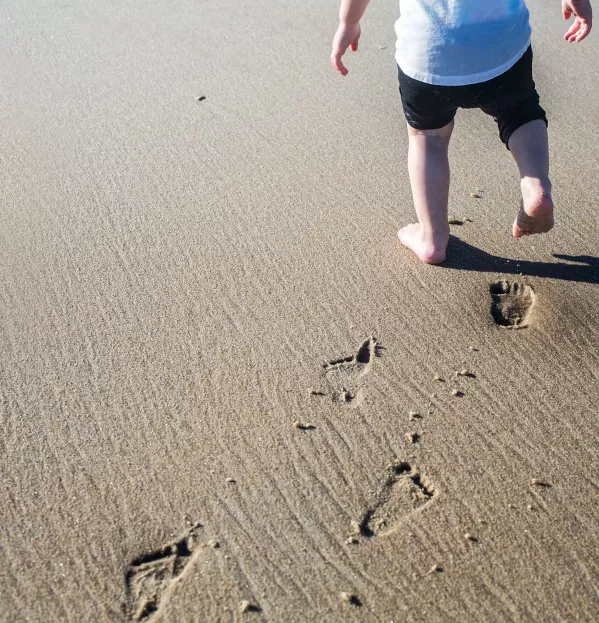- Home
- Teaching & Learning
- General
- David Geary: Why learning is hard - and how to make it easier
David Geary: Why learning is hard - and how to make it easier

In 1993, cognitive scientist Phil Lieberman was giving a lecture on the evolution of language systems when he said something that would indirectly, years later, have a significant impact on the way many teachers think about learning.
“Reading,” Lieberman reminded the audience, “was secondary to language.”
Sat listening that day was psychologist David Geary. He says Liberman’s carefully worded statement was a eureka moment for him, a catalyst for some thoughts he was wrestling with related to evolution and why students struggled to learn maths.
Science of learning
Geary began to form an idea: there was a divide between biologically “primary” systems hardwired into the brain, like language and recognising faces, and school-taught “secondary” knowledge, like learning to read and do maths.
This flash of insight became the catalyst for Geary’s eventual theory of biologically primary and secondary knowledge.
For years, this was not central to Geary’s work. As a University of Missouri professor of evolutionary psychology and cognitive scientist, he has focused predominantly on mathematical development. He’s the author of multiple books, including Children’s Mathematical Development: research and practical applications, and he was on the US National Mathematics Advisory Panel.
But in recent years a rising interest in cognitive science and the “science of learning” has put a spotlight on his theory of human learning, and it is being used to support other theories, too, such as Professor John Sweller’s cognitive load theory.
In England specifically, the influence of his ideas can be seen across education policy, particularly in the Early Career Framework.
In this deep-dive interview, Holly Korbey asks whether the theory of primary/secondary knowledge is testable, whether schools can use the theory to improve learning, and why so many would prefer children to learn chemistry in the same way that they learn language.
Tes: Let’s start by looking at ‘primary’ knowledge - how would you describe it and could you give some examples?
David Geary: Primary knowledge is made up of human universals that do not require schooling to emerge, but might require engagement in species-typical activities to adapt to local conditions to ensure their normal development.
These would be things I call ‘folk psychology’: language, the ability to read body language, facial expressions, making inferences about the thoughts and feelings of other people (theory of mind), self-awareness and generating knowledge about the self, organising the social world into in-groups and out-groups, kin and non-kin.
- Why you’re probably wrong about the science of learning
- Applying cognitive science: a classroom framework
- Is cognitive science a load of trouble?
Primary knowledge also includes knowledge of the living, biological world [which Geary has termed ‘folk biology’]. People in developed countries can go get something at the Kwik-E-Mart but, in the real world, you have to have extensive knowledge of plants and animals, and how to cook and prepare them.
Primary knowledge also includes ‘folk physics’: the ability to navigate from one place to another, the ability to generate mental maps of things. How to use objects as tools, an inherent sense of quantity - those would all be primary.
Are biologically primary skills innate or is that knowledge taught socially?
They are built-in. Brain and cognitive perceptual biases will, for example, lead infants to attend to human faces. Engaging in these behaviours is feedback to the systems that then elaborate them and adapt them to the local context.
So the basics of the language system emerge prenatally, and babies are already processing language-like sounds very early in infancy.
“There hasn’t been sufficient time for evolution to change the brain to learn to read, to learn math”
However, for that system to develop normally, kids have to engage in species-typical conversations. There are built-in behavioural biases to make sure that happens. A lot of self-generated activities result in instruction that modifies these networks so they’re adapted to their local language or other local conditions.
And what about secondary knowledge?
I’ve argued that the ease with which kids acquire certain skills could be understood in terms of the depth of their evolutionary history. So something like spatial abilities, the ability to get from one place to another; those brain networks are common across vertebrates and mammals going back 500 million years or so. There’s a very, very deep history there, and it’s set.
Other things, like language, are much more recent. The complexity of language is probably 100,000 years old. The first indicators of some formal instruction in numeracy and reading is about 5,000 years old - relative to the 500 million years above, that’s a huge gap.

And even 5,000 years ago, and up until recently, only a small segment of the population was receiving formal instruction [in reading].
There hasn’t been sufficient time for evolution to change the brain to learn to read, to learn maths and other types of school-type skills [that I would define as secondary knowledge].
The cognitive scientist Maryanne Wolf once told me that there’s a language centre of the brain but there is no reading centre of the brain. We invented reading, and then we taught ourselves how to do it. Why are we evolving towards the secondary form of knowledge, and why is it getting more and more complicated?
The evolution that’s important here is cultural evolution. As societies became larger and more complex, we needed bureaucracy and management of these more complex institutions for trading, finance and so forth.
The building up of these institutions was dependent on the initial development of number systems, then writing - ways to abstractly keep track of things - and then it kind of built from there.
But cultural evolution occurs much more rapidly than biological evolution. The cultural need just keeps on increasing as societies become more complex, but the brain lags behind.
Many in education have been convinced by your argument, but is it possible to actually prove it is right?
A theory is a way of organising information so it makes more sense than it would otherwise. You can make testable predictions from it.
Education debates about child-centred or adult-centred learning, they go back hundreds, probably thousands, of years, because people have noticed that kids learn social skills, language and find their way around town without any instruction at all, so [they think], “Why shouldn’t the same kind of student-driven principles and activities also produce good reading and mathematics outcomes?”
It turns out that the things that are difficult to learn, they’re the same things that have a very recent history and are part of these cultural innovations. So I think the primary/secondary thing pulls all of that together in a way that makes sense.
It also fits with cognitive load theory, the importance of attentional control, working memory and those sorts of things. Systems that have evolved to deal with novelty and change are engaged in secondary learning. It will take considerably more attentional control, motivation and time for basic reading skills, and eventually reading comprehension and composition. They develop over years, versus language and those types of skills.
And we would expect a language network to be easily identified in brain imaging studies and emerge fairly early in development as a primary skill. Same for navigational skills. But the development of a reading network or maths network should only emerge with formal schooling. Without formal schooling, there should be no such network - and there’s evidence for all of those predictions.
Are the categories of primary and secondary knowledge fluid? Do they change over time? Do things move categories as we get older? I’m thinking about things like learning a new language. How different is that from learning your own language?
That’s a good question. They’re fluid in a sense: with sufficient schooling you can become a very fluent reader, comprehend complex text and become a good writer. You can become almost as fluent as you are in language.
But reading is still a secondary skill. With enough practice and organisation, it becomes almost indistinguishable from language. But it’s a lot more work to reach that level of fluency and automaticity than it is for language. In fact, you probably wouldn’t reach it until you’re an adult.
Secondary language learning depends on when it occurs. If kids are exposed to a second language during natural language acquisition - early in the preschool years - and they’re immersed in it, or they are exposed to two languages at home, they’re going to pick both of them up through these primary mechanisms.
Once the developmental window for natural language learning closes through the elementary school years, then you have to learn a second language as if it was a whole new, biologically secondary skill.
So does that mean that if I don’t learn “folk physics” or “folk biology”, because I grew up in the suburbs and don’t know any of that stuff, that becomes secondary knowledge?
Some folk biology is. Do you know the difference between cabbage and lettuce? I don’t know what the developmental windows are for folk biology, but probably it’s like language. If we look at brain development and brain changes, you get more connections than you need.
Based on your experiences, the [connections] you use are kept and the ones you don’t use are pruned down. That reduces the cost of maintaining the brain and also makes you better at the stuff that you’ve used. That pruning process goes on through adolescence and early adulthood.

So probably like language at some point, the ability to acquire folk biological knowledge without a lot of instruction is probably gradually lost. But it’s interesting to think about.
Do humans acquire primary and secondary knowledge differently in different environments? Are different teaching methods required?
For primary knowledge, I think kids and also parents, depending on the skill, have some built-in biases that ensure that the kids get the experiences they need for these primary systems to develop appropriately.
For early language, the basic perceptual and brain systems are set up pretty early in life. Kids are biased to look at their parents, and parents are biased to talk to their kids, depending on the culture, and to engage them socially.
The kids or the parents initiating that activity is a type of instruction, meaning it results in experiences that modify and maintain these primary systems and adapt them to local conditions. And that occurs for most people automatically without thinking about it - it just kind of occurs naturally. That’s part of the behavioural component of these primary systems.
“You have to train the brain to do something that it isn’t designed to do - that is going to be a bit boring”
The secondary ones are very different. They involve changing brain networks and brain systems to process information they weren’t designed to process. It’s getting the brain to do something it hasn’t evolved to do easily - it obviously can do it, but not easily.
For reading, it’s important to get access to what the words sound like and what the words mean as you’re reading text. And that involves modifying part of the temporal and visual cortex to form what’s called a visual word form area.
That part of the brain is designed to process the details of shapes, objects and faces. It’s a fairly big area. But because letters in words have similar contrasts - sharp edges and stuff like that - that area will also respond to words and letters, but they won’t have any meaning until the area is modified with enough exposure and practice.
The area becomes specifically modified to automatically process the sounds of words, which then feeds right back into the language system. Then you can start to understand reading words as you would language.
Without instruction, this visual word form area never develops, but it will develop for face processing and object processing.
There’s a popular belief among parents and teachers that learning should be friction-free and natural. But what your theory suggests is that’s just not how a lot of academic learning occurs. The environment for academic learning has to be set up differently.
Schools have to organise kids’ behaviours so they engage in activities that will lead to the acquisition of skills and knowledge that wouldn’t otherwise occur if they were left on their own. That’s going to rub against children’s preferences, but without that friction, they’re not going to become academically competent. There’s just no way around that.
Could natural curiosity in something secondary lead to competency because the child engages with it on their own?
Of course, kids are very curious. They’re very curious about what their peers are doing and those sorts of things. They’re not as curious about differential equations and chemistry.
Some will become curious as they become good at it, but most aren’t. There’s no way there’s an inherent bias to be curious about calculus or chemistry.
Your work has become closely associated with cognitive load theory. Could you explain how the two interact?
Cognitive load theory has taken basic cognitive science work and is showing that certain aspects of kids’ cognitive architecture, as well as instructional materials, interact in important ways to facilitate learning.
One of those things is limitations in working memory and attentional control. We can only deal with small bits of information at a time. If there is too much in terms of instructional materials and it’s overwhelming, you have to break it down. John Sweller and others have been doing that work for decades.
But the question of why working memory, attentional control and instructional sequencing is so important for learning - but it’s not important for something that’s equally complex, like human language comprehension - remains unanswered. You don’t need instructional materials to understand what a facial expression means!
I think the primary/secondary distinction really helped to solve that problem, and refocused the question on why learning [academic subjects] is hard and why it takes attentional control.
What do you see as the ‘take homes’ for teachers from your work?
A couple of things. One is understanding that you’re asking kids to do something that they haven’t evolved to do, but at the same time, they must do it to be successful in the modern world. They must know these skills, and that’s going to conflict with kids’ preferences - what they want to do versus what they need to do to be successful in the long term.
Kids don’t want to practise piano, it’s a secondary sort of thing, and they won’t do it. But they won’t become skilled at it unless they practise it. And it’s the same with reading, mathematics - all other secondary domains.
It’s also important to understand that some people lose touch with how difficult it is to acquire the really basic elementary types of skills, that you have to start from the beginning. Remember you have to train the brain to do something that it isn’t designed to do, so it’s going to take a lot of repetition and that is going to be a bit boring. You’re trying to coax the brain into doing something that it doesn’t really want to do.
Are you worried that your views - and the science of learning movement more generally - are going to become misinterpreted and do more harm than good?
I am concerned that this will become another educational fad. There’s a tendency to jump on fads and to implement them in ways that probably were ill-founded to begin with. Or if they’re well-founded, they may not work if they’re not done carefully and systematically.
How we learn is very complicated, and not fully understood. We know how the brain learns certain things, but a lot of things we don’t fully understand.
We need to do the hard work of figuring out exactly how to create these secondary skills. So just jumping in and saying, “We need to do A, B and C” - that could lead to a fad, and could lead to failure. We need to understand some things, we need to step back.
For the latest research, pedagogy and classroom advice, sign up for our weekly Teaching Essentials newsletter
Register with Tes and you can read two free articles every month plus you'll have access to our range of award-winning newsletters.
Keep reading with our special offer!
You’ve reached your limit of free articles this month.
- Unlimited access to all Tes magazine content
- Save your favourite articles and gift them to your colleagues
- Exclusive subscriber-only stories
- Over 200,000 archived articles
- Unlimited access to all Tes magazine content
- Save your favourite articles and gift them to your colleagues
- Exclusive subscriber-only stories
- Over 200,000 archived articles
topics in this article



